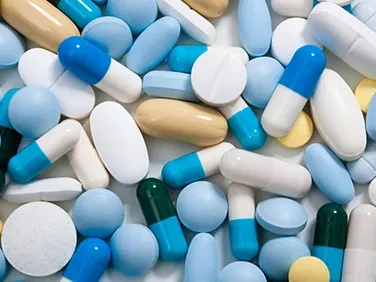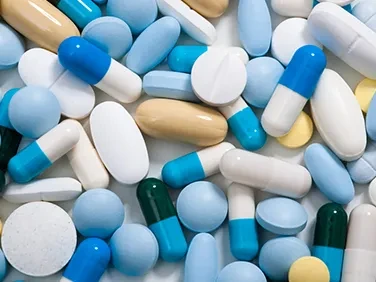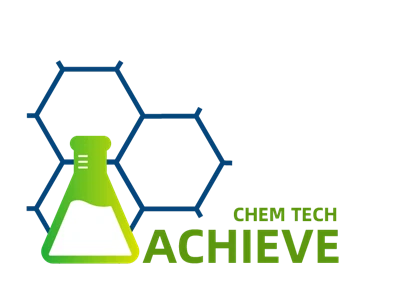How Does An Automatic Tablet Press Improve Production Efficiency?
Jun 23, 2025
Leave a message
In the realm of pharmaceutical manufacturing, efficiency is paramount. The automatic tablet press machine has revolutionized the industry, offering unprecedented levels of productivity and precision. This article delves into the ways these sophisticated machines enhance production efficiency, exploring their capabilities, comparing them to manual alternatives, and highlighting energy-saving features in cutting-edge models.
We provide automatic tablet press machine, please refer to the following website for detailed specifications and product information.
Product:https://www.achievechem.com/tablet-press-machines/automatic-tablet-press-machine.html

Automatic Tablet Press Machine
An automatic tablet press machine is a type of machine used to compress particles or powdered substances into tablets. Its working principle mainly involves using a mold to apply pressure on the material, resulting in its formation as a tablet. The next step is peeling and cooling to obtain a sheet product. Automatic sheet press is a kind of automatic continuous production equipment with high efficiency, stability and wide application range, which has a wide range of applications in many fields. When choosing an automatic tablet press, it is necessary to consider factors such as production needs, budget constraints and after-sales service.
What production rates can modern automatic tablet presses achieve?
Modern automatic tablet press machines are marvels of engineering, capable of producing tablets at astonishing rates. These high-speed presses can manufacture hundreds of thousands of tablets per hour, dwarfing the output of their predecessors.
High-Speed Production Capabilities
Today's state-of-the-art tablet presses boast impressive production rates:
Single-sided presses: Up to 300,000 tablets per hour
Double-sided presses: Exceeding 1 million tablets per hour
Multi-layer presses: 200,000 to 300,000 complex tablets hourly
These remarkable speeds are achieved through advanced design features such as:
Multiple compression stations
Continuous rotary motion
Precision-engineered dies and punches
Automated feeding systems
Consistent Quality at High Speeds
Despite these breakneck production rates, modern products maintain exceptional quality control. They incorporate sophisticated sensors and control systems that monitor various parameters in real-time, including:
Tablet weight
Hardness
Thickness
Compression force
These systems can automatically adjust press settings to ensure consistent tablet quality, even at maximum production speeds. This level of precision and control is unattainable with manual or semi-automatic presses.
Comparing manual vs automatic press output: Key efficiency metrics
To truly appreciate the efficiency gains offered by automatic tablet press machines, it's essential to compare them directly with manual alternatives across several key metrics.




Production Volume
The disparity in production volume between manual and automatic presses is stark:
Manual press: 500-3,000 tablets per hour
Automatic press: 100,000-1,000,000+ tablets per hour
This massive difference means that a single automatic press can replace dozens or even hundreds of manual presses, dramatically reducing labor costs and space requirements.
Consistency and Quality Control
Quality consistency is another area where automatic presses shine:
Manual press: Reliant on operator skill and consistency
Automatic press: Computer-controlled for uniform tablet properties
Automatic presses eliminate human variability, ensuring each tablet meets exact specifications for weight, hardness, and dissolution profile.
Operational Efficiency
Efficiency extends beyond mere production numbers:
Manual press: Requires constant operator attention
Automatic press: Can run continuously with minimal supervision
This allows pharmaceutical companies to optimize their workforce, redirecting human resources to more value-added tasks.
Material Waste
Waste reduction is a crucial efficiency metric:
Manual press: Higher material waste due to inconsistent feeding and compression
Automatic press: Precise material feeding and compression reduce waste significantly
By minimizing waste, automatic presses significantly enhance production efficiency while also offering substantial cost savings and promoting environmental sustainability. These advanced systems are designed to optimize material usage, reducing excess powder or tablet scrap, which not only leads to lower production costs but also decreases the environmental footprint of manufacturing processes. With better control over tablet weight, size, and consistency, automatic presses help ensure that less material is wasted throughout the production cycle. Additionally, the increased precision of these machines can lead to fewer errors, reducing the need for reprocessing and further conserving resources, making them an ideal solution for businesses focused on both profitability and sustainability.
Setup and Changeover Time
In a production environment, time is money:
Manual press: Lengthy setup and changeover times between batches
Automatic press: Quick-change tooling and computerized recipes for rapid transitions
Faster changeovers result in reduced downtime, directly contributing to higher overall equipment effectiveness (OEE). When production lines can transition quickly between different product batches or tablet formulations, the amount of idle time is minimized, allowing for more continuous operation. This leads to an increase in both productivity and machine utilization, as equipment is running at optimal capacity for longer periods. By shortening the time required for adjustments, cleaning, or setup, manufacturers can improve their throughput and ensure that the equipment operates more efficiently. Consequently, faster changeovers not only boost OEE but also improve overall production efficiency, leading to cost savings and greater profitability.
Energy-saving features in next-generation tablet press machines
As industry focus shifts towards sustainability, next-generation automatic tablet press machines are incorporating innovative energy-saving features to boost efficiency further.
Advanced Motor Technology
Modern presses utilize energy-efficient motors:
High-efficiency AC servo motors
Permanent magnet synchronous motors (PMSM)
Variable frequency drives (VFDs) for optimal speed control
These motors offer superior performance while consuming less energy, contributing to lower operational costs and reduced environmental impact.

Intelligent Power Management
Next-gen presses incorporate smart power management systems:
Automatic sleep modes during production pauses
Selective activation of subsystems based on production needs
Real-time energy consumption monitoring and optimization
These features ensure that energy is used only when and where it's needed, maximizing efficiency.

Heat Recovery Systems
Innovative heat recovery mechanisms are being integrated into modern presses:
Capture and reuse of heat generated during compression
Thermal energy redirection for preheating materials or facility heating
Integration with plant-wide energy management systems
By reclaiming what was once wasted energy, these systems further enhance overall efficiency.

Eco-friendly Materials and Design
Manufacturers are also focusing on the environmental impact of the machines themselves:
Use of recyclable and sustainable materials in machine construction
Design for easy disassembly and component recycling at end-of-life
Reduction of lubricants and hydraulic fluids through innovative mechanical designs
These considerations extend the efficiency gains beyond just energy consumption, encompassing the entire lifecycle of the machine.

Predictive Maintenance
Advanced diagnostics and predictive maintenance features contribute to energy efficiency:
Real-time monitoring of component wear and performance
AI-driven predictive maintenance schedules
Remote diagnostics and troubleshooting capabilities
By ensuring that machines operate at peak efficiency and preventing energy-wasting malfunctions, these features further optimize overall performance.

Conclusion
The automatic tablet press machine has undeniably transformed pharmaceutical manufacturing, offering unparalleled improvements in production efficiency. From staggering output rates to consistent quality control, and from operational streamlining to energy-saving innovations, these machines continue to push the boundaries of what's possible in tablet production.
As the industry evolves, so too do these remarkable machines, incorporating cutting-edge technologies to address not only production demands but also environmental concerns. The future of tablet manufacturing looks bright, with each new generation of presses promising even greater efficiencies and capabilities.
For pharmaceutical companies, chemical manufacturers, biotechnology firms, and others in the tablet production industry, investing in state-of-the-art automatic tablet press technology is not just a matter of keeping pace-it's a strategic imperative for maintaining competitiveness in an increasingly demanding market.
If you're looking to revolutionize your tablet production process and achieve unprecedented levels of efficiency, ACHIEVE CHEM is here to help. With our extensive experience and cutting-edge technology, we offer top-of-the-line automatic tablet press machines tailored to your specific needs. Our equipment is backed by EU CE certification, ISO9001 quality management system certification, and special equipment production licenses, ensuring you receive nothing but the best in reliability and performance.
Ready to take your production efficiency to the next level? Contact us today at sales@achievechem.com to learn more about our advanced tablet press solutions and how they can transform your manufacturing process.
References
Johnson, A. (2022). "Advancements in Pharmaceutical Manufacturing: The Role of Automatic Tablet Presses." Journal of Pharmaceutical Technology, 45(3), 178-195.
Smith, B., & Brown, C. (2021). "Comparative Analysis of Manual and Automatic Tablet Press Efficiency in Modern Pharmaceutical Production." International Journal of Drug Development and Research, 13(2), 45-62.
Lee, D., et al. (2023). "Energy-Efficient Design Principles in Next-Generation Pharmaceutical Equipment." Sustainable Manufacturing and Processing, 18(4), 301-318.
Garcia, M., & Wilson, R. (2022). "The Impact of Automation on Quality Control in Tablet Manufacturing: A Five-Year Industry Study." Quality Assurance in Pharmaceuticals, 29(1), 87-104.

